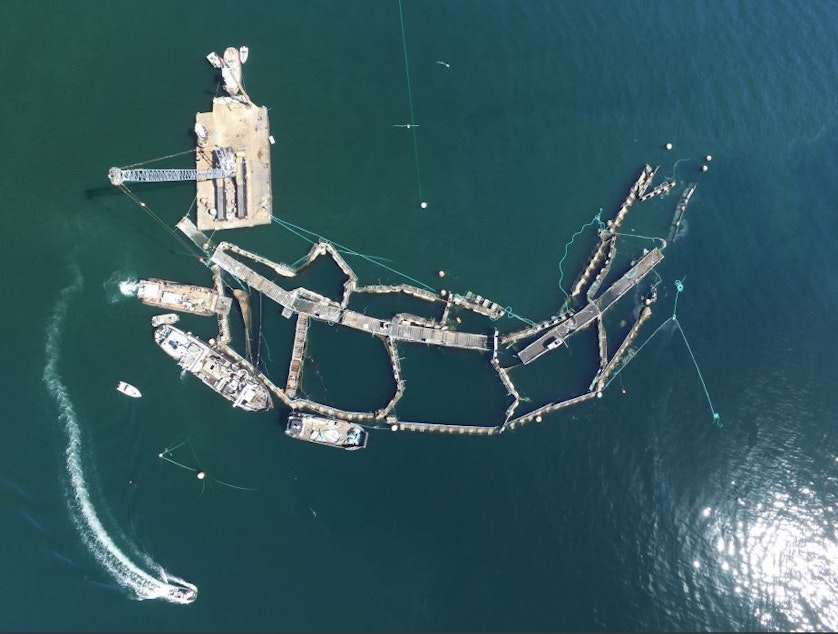Preventing another salmon escape: New rules for Puget Sound fish farms

The four remaining Atlantic salmon farms in Puget Sound have new water quality permits from the Department of Ecology.
Those permits aim to protect Puget Sound during and after the farms’ last years.
The collapse of a fish farm in 2017 allowed more than 250,000 Atlantic salmon to escape into Puget Sound. The new permits aim to prevent anything similar from happening in the future.
“They’ll have to have regular inspections,” says Colleen Keltz, a spokesperson for Washington’s Department of Ecology. “They would do underwater video monitoring of all of the net pens.”
“Part of what we’re looking at is making sure we don’t have things like barnacles and mussels and algae building up on those nets, which hurts the structure of the net and could lead to a fish release,” Keltz explains.
The Washington state legislature voted in 2018 to phase out non-native fish farming in 2022. The Hope Island fish farm will close in March 2022, and the three Bainbridge Island sites will close in November 2022.
Sponsored
Cooke Aquaculture is the company that owns all four of those fish farms.
The new permits from Ecology require that, after the fish farms close, Cooke must restore the sites to their natural state. That will include monitoring the sediments below the fish farm sites to make sure they don’t contain additional nutrients or pollutants.
The new water quality permits go into force on August 10. Cooke Aquaculture can appeal the new permits, but they will stay in force until and unless the appeal is successful.




